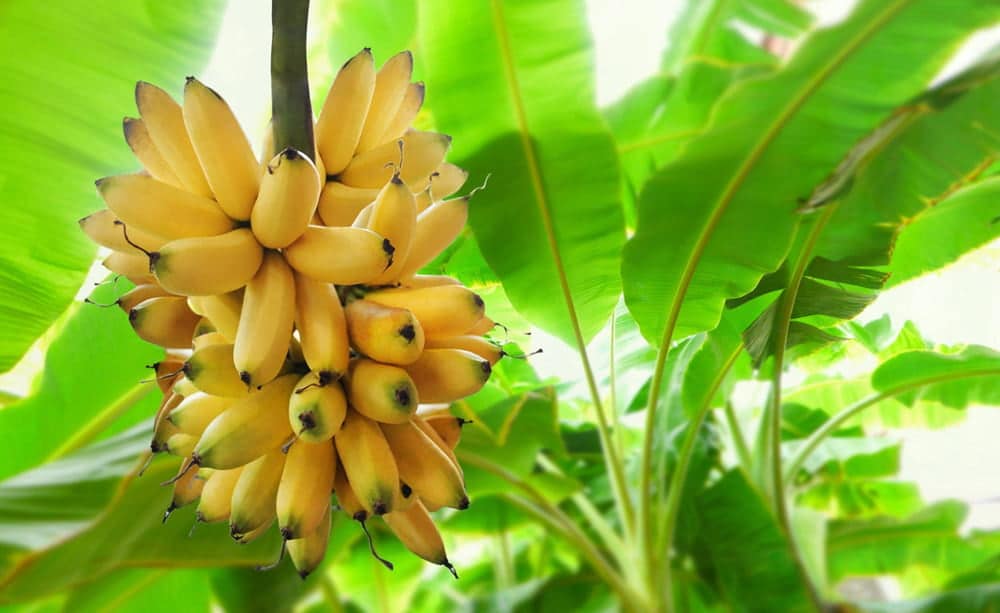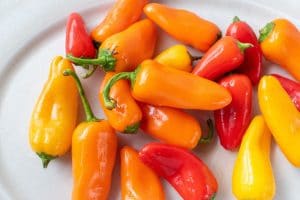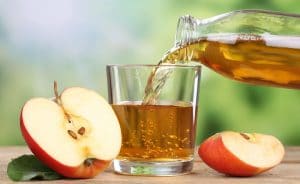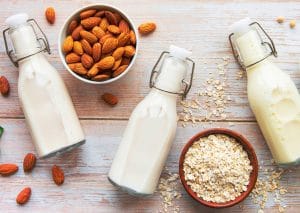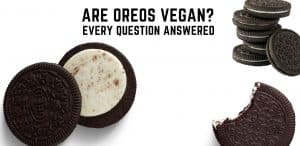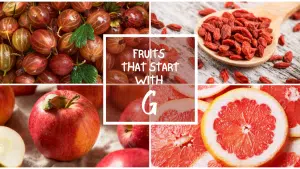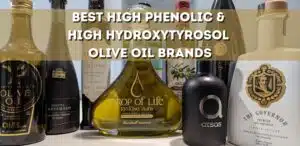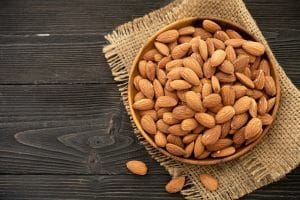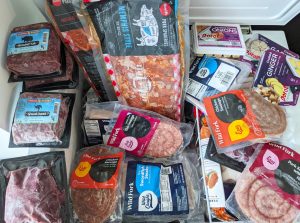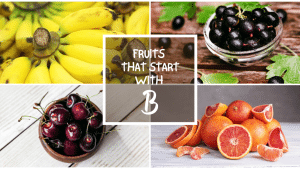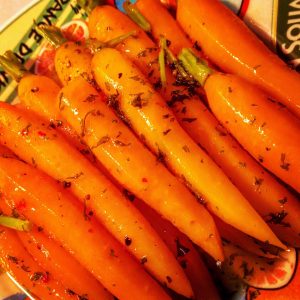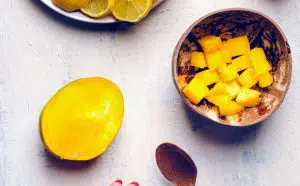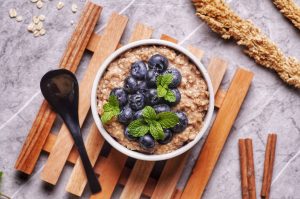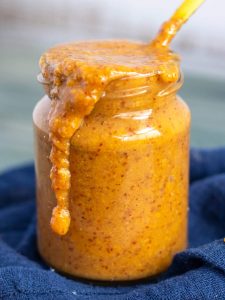Organic vs. GMO Bananas: Which Is the Healthier Choice?
Important Note: When you buy through our links, we may earn a commission. As an Amazon Associate we earn from qualifying purchases. Content, pricing, offers and availability are subject to change at any time - more info.
Organic produce is a rapidly growing market. With a higher awareness of our health in general, we’ve been looking for smart food choices that not only benefit us but are kind to the environment.
And farming, an industry that provides the food for millions around the world are looking for ways to grow smarter with less waste and lower cost. One solution for that is using GMO seeds. But are you giving up good nutrition and your own health in return?
What Does GMO Mean?
GMO is the acronym for a genetically modified organism. Unlike the slow process of hybridization where plants are cross pollinated or grafted, agricultural scientists take a short cut by tinkering with a plant’s DNA.
The goal of both modifying DNA and hybridization is the same – create a better fruit, vegetable or grain. What does better mean? The plant is more resistant to diseases and insects, tastes better and is void of unwanted features like color or texture.
In the case of GMOs, more characteristics can be altered. Plants can be made to produce more nutritious foods or be resistant to certain chemicals farmers use to control weeds. These types of foods are created to produce higher nutrition for the food and to make it resistant to pests that can destroy it.
GMO foods have been available to consumers since the early 1990s and are considered safe by the US Food and Drug Administration. There is no label to identify GMO foods, but you will find a Non-GMO label.
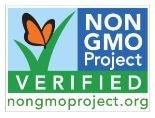
The Pros and Cons of GMOs
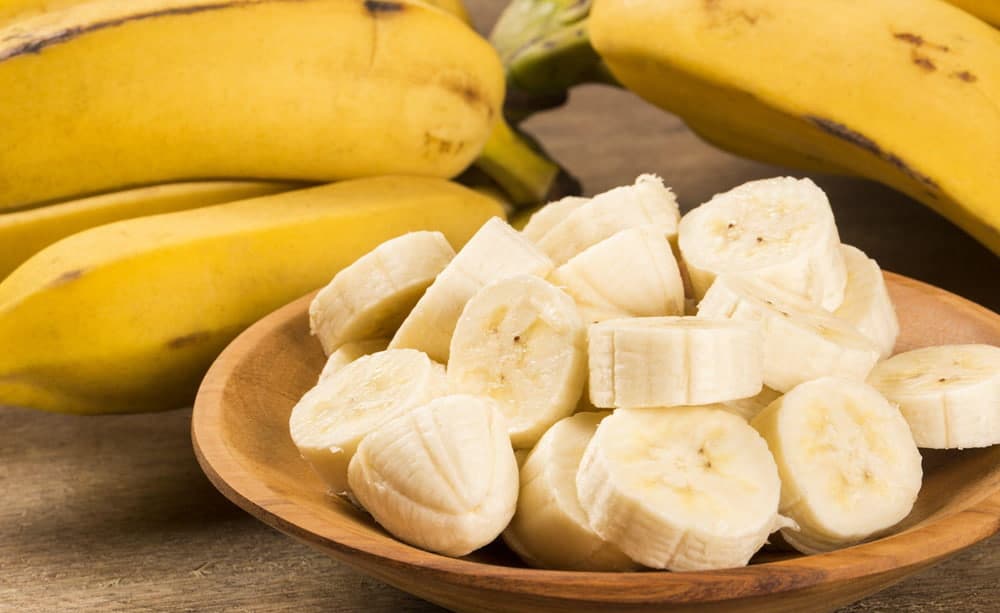
GMO seeds are always used with traditional farming methods. That means synthetic chemicals are used against pests and diseases and to control weeds. Though synthetic, most of these chemicals don’t pose risks to people but some do. In the case of bananas, their thick skin prevents chemicals from being absorbed in the banana flesh, keeping all bananas off the dirty dozen list.
Another concern is that, over time, weeds and pests build up resistance to GMO plants making additional genetic modifications necessary – not to mention how these alterations effect the environment and insect/plant ecosystems.
Finally, there are concerns about GMOs effect on human and animal health. Presently, the US FDA says GMO foods are safe to eat but even after 30 years of studies, there may be more to know. Research is ongoing.
On the positive side, GMOs can boost or provide additional nutrients, creating virtual “superfoods”. They also reduce the need for some chemicals to control pests and diseases resulting in not only “cleaner” food but less environmental damage. And, without crop loss due to pests or diseases, higher yields mean more food to feed the world.
What Are Organic Foods?
Food certified as organic don’t contain synthetic herbicides, chemicals, pesticides, drug residue, antibiotics, or neurotoxins. They’re also grown from heirloom or hybrid seeds – no GMO seeds allowed.
Ingesting chemical residue is a primary concern for pregnant women and children. Though the US Environmental Protection Agency monitors for excessive chemicals in foods, small amounts can build up over time so organic foods early in life is a wise choice.
Organically grown foods have been shown to provide higher nutritional content than those traditionally farmed. Combined with less pesticide exposure, support for organic products is growing from consumers and governments alike.
In the US, look for the USDA Organic symbol which indicates the producer has adhered to the USDA’s strict guidelines. Natural or other descriptions are meaningless.
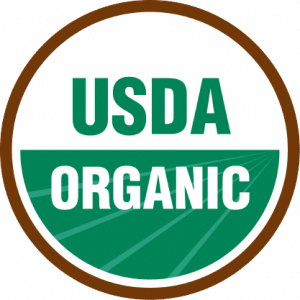
The Downside of Organic Farming
Organic farmers do treat their crops for fungus, insect and disease control so they’re not totally pesticide free. The difference is they use naturally derived substances for control. Luckily, residue from these products is rarely cause for concern but as with traditionally farmed produce, you should thoroughly wash.
Ironically, some organic farmers are lobbying to use GMO seeds. They believe GMO’s so far proven safety record and increased crop yields would help lower costs and make organic produce affordable for more people.
How Does this Relate to Bananas?

The variety of banana we know and love is in danger of extinction thanks to the rise of a new variant of Panama disease, a fungus for which there is no cure. Genetic modification is being used to save it from that fate.
You won’t know if the bananas you’re buying are GMOs or not. There are no standards for identifying GMO foods, though some grocery store chains require their suppliers to mark their products as GMO.
Super Bananas
On their own, bananas provide lots of nutrients. But if a banana could have even more nutrients, they could provide a “super” source of nutrition.
The ideal growing conditions for bananas happen to be in some of the poorest nations in the world. A nutrient enhanced banana would be a huge benefit to these generally malnourished populations. And that’s just what’s happening. Scientists hope to soon introduce a “bio-fortified” banana to African growers soon.
Key Takeaways
- To avoid extinction, many bananas have been genetically modified to protect against a non-curable fungus.
- The US Food and Drug Administration has found GMO foods are safe for consumers.
- Long term effects have been studied and while no significant human harm has been found to date, research continues to monitor for changes.
- Since organic farmers cannot use GMO seeds, GMO products are more likely to contain synthetic chemicals. However, advances in integrative pest/disease management and better farming practices along with GMOs are reducing the need for chemical use.
- If your primary concern is chemical residue in or on foods, choose organic foods.
